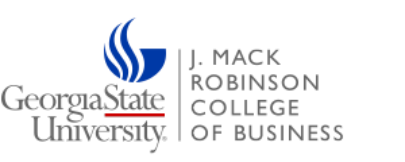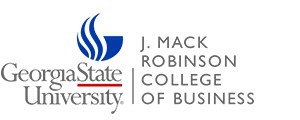Business Valuation Challenge
The J. Mack Robinson College of Business and the Department of Finance are proud to host the 8th annual Business Valuation Challenge 2024. We at GSU are proud to have the baton passed to us from Seattle Pacific University and are grateful for the foundation laid out by the challenge's founder Dr. Herbert Kierulff. The race for the "Kierulff Cup" is on!
The gap between the value placed on a company or other asset combination by professional appraisers and by those using only intermediate textbook theory is usually large–unacceptably so. The gap persists despite the fact that as much as two-thirds to three-quarters of the material in the textbooks pertain to valuation issues.*
Our vision: Increasing opportunities for university education in the theory and practice of valuation, particularly with respect to the valuation of private corporations and other closely held asset combinations.
Our Mission: To provide an annual private business valuation competition for teams of university accounting and finance students. We believe that a competition is one of the best ways to encourage the development of accounting and finance majors competent in valuing actual business asset combinations such as companies, divisions, and joint ventures.
Participants and their faculty mentors receive the following at no cost:
*Three examples applying the operating income method to actual small companies from our Challenge: The equity of a brewery with sales of $26 million was valued at $126 million using the straightforward textbook approach; the professional appraisers valued the company at $24 million using the same approach but accounting for variables relevant to smaller private firms. The equity of a private engineering services company with sales of $42 million had a textbook income method value of $40 million and an appraised value of $7 million. The equity of a private road construction company with sales of $162 million had a textbook income method value of $96 million; the appraised value was $43 million. The variances were traced to the omission of key concepts and variables in the texts, perhaps due to a lack of publicly available data and information. Many essential private sources used by professionals are far too expensive for universities to provide and students to buy. We have access to these databases and information sources through BVR.
The gap between the value placed on a company or other asset combination by professional appraisers and by those using only intermediate textbook theory is usually large–unacceptably so. The gap persists despite the fact that as much as two-thirds to three-quarters of the material in the textbooks pertain to valuation issues.*
Our vision: Increasing opportunities for university education in the theory and practice of valuation, particularly with respect to the valuation of private corporations and other closely held asset combinations.
Our Mission: To provide an annual private business valuation competition for teams of university accounting and finance students. We believe that a competition is one of the best ways to encourage the development of accounting and finance majors competent in valuing actual business asset combinations such as companies, divisions, and joint ventures.
Participants and their faculty mentors receive the following at no cost:
- Copies of an actual private entity case study will be provided.
- Company, industry, and economic data and valuation information provided by Business Valuation Resources, LLC (BVR). This includes access to the BVR databases of private business valuation data. The BVR material is valued at over $5,000 per participant
- Judging by professional business appraisers holding senior level positions in their firms
*Three examples applying the operating income method to actual small companies from our Challenge: The equity of a brewery with sales of $26 million was valued at $126 million using the straightforward textbook approach; the professional appraisers valued the company at $24 million using the same approach but accounting for variables relevant to smaller private firms. The equity of a private engineering services company with sales of $42 million had a textbook income method value of $40 million and an appraised value of $7 million. The equity of a private road construction company with sales of $162 million had a textbook income method value of $96 million; the appraised value was $43 million. The variances were traced to the omission of key concepts and variables in the texts, perhaps due to a lack of publicly available data and information. Many essential private sources used by professionals are far too expensive for universities to provide and students to buy. We have access to these databases and information sources through BVR.




